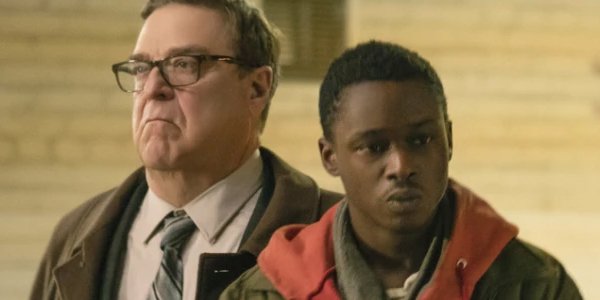Captive State Was Inspired By Some Surprising Classics

Your Daily Blend of Entertainment News
You are now subscribed
Your newsletter sign-up was successful
When new science-fiction films are about to be released, it’s common that we hear a lot of filmmakers talk about what are fairly standard inspirations – films like Star Wars, Alien, Blade Runner, and 2001: A Space Odyssey. Obviously this makes sense, as it’s logical to take cues from some of the best genre films of all time, but interestingly that’s not the story behind the new film Captive State. As while the movie is definitely a sci-fi tale featuring a full-scale alien invasion, it wasn’t actually classic alien invasion movies that gave co-writer/director Rupert Wyatt ideas of what he wanted to do with the feature.
The subject of Captive State’s sources of inspiration came up early in a conversation that I had with Rupert Wyatt last week, talking over the phone about his work on the new film. I started the interview asking him about where the initial idea came from, and how it developed as a movie he wanted to make, and I’ll admit that he sincerely surprised me with the titles that he namedropped:
I've always been a fan of stories about characters that rage against the machine, and that'll fight back against the institutions. So Randle P. McMurphy in One Flew Over The Cuckoo's Nest, or Paul Newman [as Lucas "Luke" Jackson] and Cool Hand Luke. And I've also been a real fan of stories, or films, rather, that deal with that on a macro level - on a national level. So Battle Of Algiers is one of my favorite films, and Army Of Shadows about the French resistance, Jean-Pierre Melville.
Rather than approaching Captive State from a purely genre perspective, Rupert Wyatt was compelled to tell this story because of a personal fascination with iconoclasts, which he brought to his work on the script alongside co-writer Erica Beeney. What’s more, he was particularly interested in the idea on both small and large scales, noting examples of both personal struggles – namely battles within the walls of mental hospitals and prisons – as well as full scale revolts.
This certainly tracks with the plot developments of Captive State, which is an ensemble film set in the not-to-distant future following an invasion of extraterrestrials known as the Legislators. The story tracks a number of different narratives to show life in this world, including those both trying to maintain a level or order, and those who are trying to take down what they see to be an oppressive system.
Rupert Wyatt is no stranger to science-fiction, having previously directed Rise Of The Planet Of The Apes, but his approach to genre with this one was a bit secondary. Taking the inspiration he did from the films mentioned above, he felt he wanted to tell a story in America, but not one that has already been told. As a result, it was felt by the filmmaker that the best move would be to tell a story set in the future instead of the past. Said Wyatt,
I thought it would be really interesting to be able to tell a story like that, but on the footprint of America - North America. And rather than delve back to the American revolution when they were kicking the likes of me out of the country, I thought what about if I kind of push into the future and put a documentary film crew into the future and tell that story - but in a very near future, and the occupying beings being an alien species. It really sprung from that.
It’s ultimately an impressive juggling act, but one that Captive State pulls off – both creating a heavily-detailed world and a number of engaging characters with compelling specific missions. The film, which stars Ashton Sanders, John Goodman, Vera Farmiga, Alan Ruck, James Ransone, and Kevin Dunn, arrives in theaters this Friday, and we’ll have more for you about the movie heading your way in the next few days here on CinemaBlend.
Your Daily Blend of Entertainment News

Eric Eisenberg is the Assistant Managing Editor at CinemaBlend. After graduating Boston University and earning a bachelor’s degree in journalism, he took a part-time job as a staff writer for CinemaBlend, and after six months was offered the opportunity to move to Los Angeles and take on a newly created West Coast Editor position. Over a decade later, he's continuing to advance his interests and expertise. In addition to conducting filmmaker interviews and contributing to the news and feature content of the site, Eric also oversees the Movie Reviews section, writes the the weekend box office report (published Sundays), and is the site's resident Stephen King expert. He has two King-related columns.
